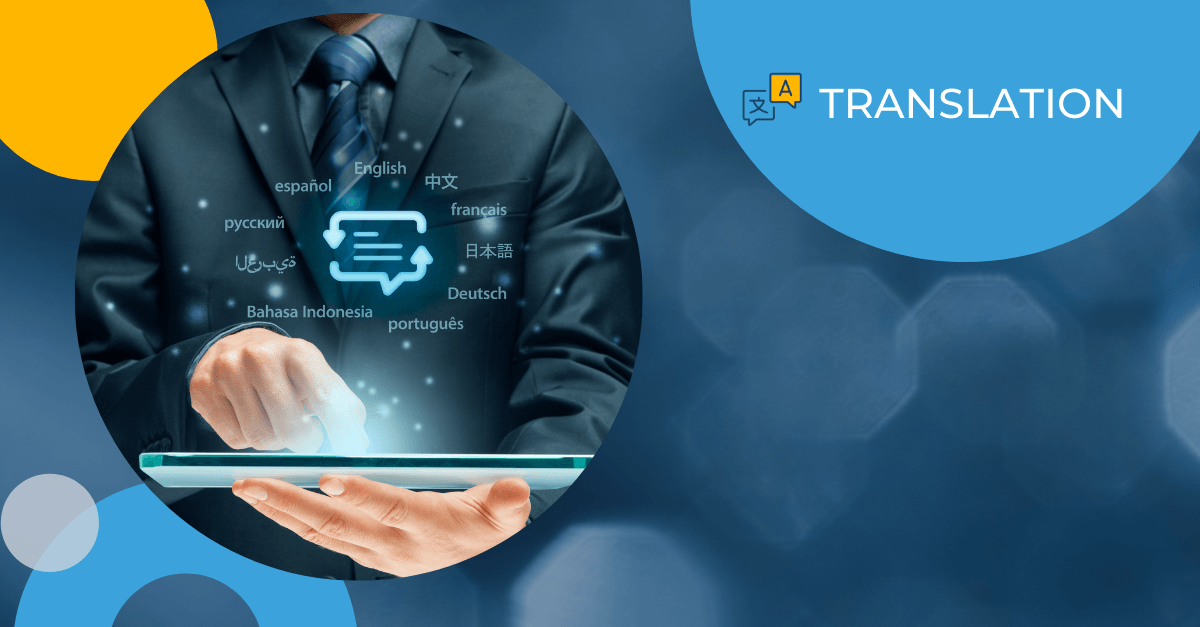Let’s say your organization has a product release coming up which requires a guide and troubleshooting manual, each in 15 languages. In this situation or anyone like it, when you have a mountain of content to produce and looming deadlines, you may not give much thought to the collateral or technical translation agency you partner with. As a result, it may be easy to fall into some technical translation mistakes that you can avoid by simply partnering with an experienced language service provider (LSP).
1. Think about Translations Holistically
It’s easy to fall into the habit of thinking of a single translation project instead of thinking of organizational translations holistically. People from multiple departments develop content in silos. For example, in the case of a software release, you may have developers working in the technical software writers creating manuals and help files, marketing doing website updates and creating marketing collateral.
Unless you make a concerted effort to work together and use the same terminology, units of measurement, benefits and more, your pre-sales and post-sales collateral may not match each other and the software itself.
Another issue with not thinking holistically about translations is that you may not think about the resources that your technical translation company needs to do the work. If three departments send in five translation projects like mentioned above at one time, the translation company most likely won’t be able to use the same resources. This inevitably makes it challenging to deliver projects on time and within budget while everything is due simultaneously.
When you are preparing a project for translation, you can work with your LSP to think more holistically about your translations:
- Develop a terminology plan.
- Have one person take the lead and use a spreadsheet or other method to track decisions.
- Discuss terminology during team meetings or have meetings to discuss language.
Share the terminology with your technical translation agency as soon as possible, even if you have to add it later. This enables the company to build infrastructure before the actual translation is needed. The work will include developing terminology, multilingual glossaries, and multilingual style guides.
Work as a product release team to stagger sending files to translation. Instead of sending manuals, help files, website copies, etc., at once, work as a team to see what you can send and when. An option is to send drafts of the content to the translation company and the final versions when they’re ready. They can deliver the final versions more quickly this way using translation memory.
2. Selecting the Cheapest Technical Translation Agency
You do your due diligence and research technical translation agencies and jump to work with the cheapest available. Great job – you are saving your organization money. But, most likely not, as some quotes may be deceiving. A translation quote may be low because:
- They don’t have the expertise in your industry, so that the quality may be low.
- They may be using inexperienced translators, they may not be native speakers, or they don’t reside within your target countries, so their language knowledge may not be up-to-date. Without using experienced translators in your industry, the quality can suffer!
- Sometimes machine translation tools are used on content that can be tricky, like marketing content, so even if there’s deep post-editing, it still may not sound quite right.
- There might not be QA, proofreading and editing processes, so the translation may have errors, damaging your brand and eventually costing you more than the initial translations.
- They may not have a solid quality process.
Suppose you’re delivering a specific output, such as localized websites. In that case, you want a translation company with the latest technology to drive an efficient process – not just a company that can translate words. The best translation companies have a thorough quality process to deliver a high-quality product. Many even have ISO certifications, such as ISO 9001:2016, ISO 17100:2015 and ISO 13485:2016. However, this doesn’t mean you have to select the most expensive technical translation agency either. You can reduce translation costs without compromising quality by planning your content before developing it, taking advantage of translation tools and optimizing processes. Your expert LSP can help show you the way to on-time and on-budget translations.
3. Assuming a Translation Project Can Be Turned Around Quickly without Cost
Unless your project is tiny, it’s unlikely that you can turn it around very quickly, at least without paying an arm and a leg or without sacrificing quality. All quality translation projects take time or serious resources to produce. The translation is one element of a much larger process, albeit the longest, but other parts of the process must happen. Depending on the project type, the other parts may include desktop publishing (DTP), localization testing, localizing graphics, website testing, and more. Of course, every project needs a detailed quality assurance testing process.
You should be cautious if a translation company offers you a cheap rapid turnaround on anything but a small project. This is a red flag that the result may be low-quality. Quick turnarounds can signify that multiple translators are working on it simultaneously or that there won’t be time for a good quality review process.
Avoid Technical Translation Mistakes
By taking the time to plan a translation project and working with an experienced LSP, you can avoid making these translation errors. For additional information about technical translation services, contact us.
About Morningside
Morningside equips the world’s leading organizations with accurate, high-quality, professional translation services. We specialize in highly regulated industries, including legal, life sciences, corporate compliance and IP. We help your ideas reach new markets and audiences while allowing you to do more with your budget. Our global network of 8,000+ vetted translators includes subject matter experts (SMEs) in various technical fields and practice areas. Morningside is supported by industry-leading technology and a quality management system certified to the latest ISO 9001, 13485 and 17100 standards. We translate complex materials into 200+ languages for Global 500 companies, international law firms, and regulatory bodies.



